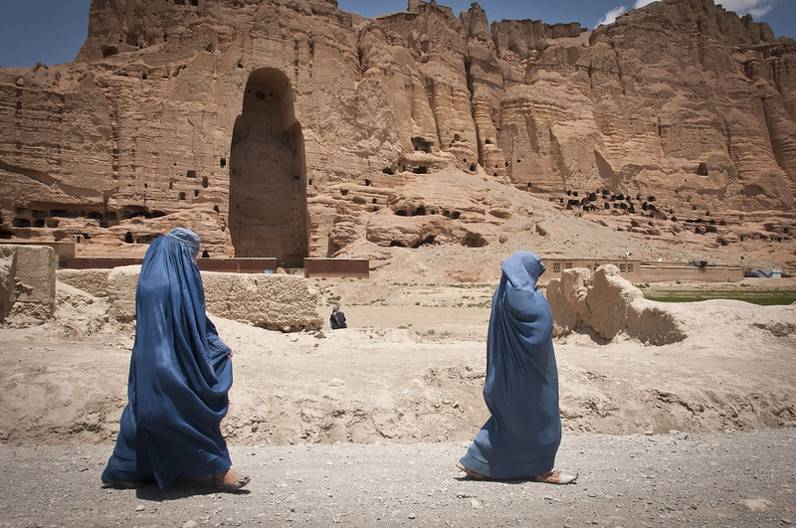
Culturally significant items, buildings, places, or even landscapes – today usually referred to as "Cultural Property" – have always been central to strives and armed conflicts. However, today's progressively complex role of Cultural Property in international security represents a cultural phenomenon driven by post-World War II values and international norms, laws and institutions related to Cultural Property Protection (CPP), in combination with the more recent rise of identity-driven, asymmetric, and globalized conflicts with increasing social mediatization.
Cultural Property can be described as a material expression of, and anchor for, culture and identity, articulating a sense of belonging to a distinctive place, group or cause. The more culture stands at the heart of conflicts, the more Cultural Property becomes a security issue. This is observable in most recent armed conflicts, including those during the Balkan wars in the 1990s; those perpetrated by Daesh in Syria; by Ansar-Dine in Mali; and by Taliban in Afghanistan, as well as during the war in Yemen, and the religious conflicts in Myanmar, India and Pakistan. The attack on the World Trade Center in 2001 can also be viewed as part of this attack on symbols of contemporary culture, as well as attacks we have seen on concert venues and other cultural places. Larger military powers also exploit the power of CP, as demonstrated by Russia's annexation of Crimea, which was bolstered by claims to culture and heritage. And one of the top three reasons why NATO remains in Kosovo is due to conflict prone issues related to Cultural Property. Most recently, President Trump drew serious headlines by threatening Iran with direct military attacks on Iranian Cultural Property
The concern for the destructive effect of armed conflict on cultural property stands as a core NATO value as enshrined in the preamble to the North Atlantic Treaty and is also expressed in the alliance's commitment to international humanitarian law. NATO has made progress in developing a NATO approach for addressing the cross-cutting challenges related to cultural property in NATO operations and missions.
In fact, today NATO stands as the leading organization in developing a military approach for applying the 1954 Hague Convention for the Protection of Cultural Property in the Event of Armed Conflict – a key instrument of International Humanitarian Law, which detailed the international legal protection of Cultural Property long before the 1977 Protocols I and II additional to the Geneva Conventions codified the protection of civilians in international humanitarian law. The key principles enshrined in the 1954 Hague Conventions are considered customary international law.
In addition, the drafters of the Genocide Convention from 1954 included the act of systematically destroying cultural property for the purpose of destroying the culture of a group or a society as 'cultural genocide'. And in NATO, the topic of Cultural Property Protection ("CPP") is placed within the protection of civilian's framework.
While international law and policy identify cultural property destruction in armed conflict as a humanitarian concern, the exact relationship between CPP and the broader humanitarian agenda remains to be clarified, including by moral philosophy addressing ethics of war issues. In fact, despite its centrality in international humanitarian law and in the reality of armed conflicts, a just war theory perspective on destroying and saving cultural property remains to be developed.
The recent developments in NATO on CPP have to a large extent been driven by a NATO Science for Peace and Security Project on CPP. The project was hosted and implemented by the Nordic Center for Cultural Heritage and Armed Conflict (CHAC), which was established as an organization to provide a home for the many initiatives and partnerships that grew out of the SPS-project, including with PRIO.
In 2019, allied nations approved a second round of this SPS project, which revolves around an international NATO SPS conference in Brussels ultimo March 2020, and which casts a wider perspective on the topic in the context of developing trends in international security. To this aim, this project round focuses on a number of issues related to CPP in NATO.
Purpose
The aim of this roundtable is to introduce and discuss ethical, legal and political questions regarding the protection of cultural property in armed conflict, focusing on how this agenda can be taken forward. This will also serve as a preparation for the upcoming meeting of the NATO Science for Peace and Security Project on Cultural Property in NATO-led Operations and Missions (NATO SPS CPP) in Brussels ultimo March 2020.
Program
13.00 – 13.30: Welcome and introduction by Frederik Rosén, University of Southern Denmark,
Co-director, NATO SPS CPP.
13.30 – 15.00: Roundtable discussion.
Chair: Kristoffer Lidén, PRIO.
Bio
Frederik Rosén is Chief Consultant, Dept. of Business and Economics at the University of Southern Denmark and Adjunct Associate Professor, Dept. Cross-Cultural and Regional Studies, University of Copenhagen. He is a former Associate Professor at the Faculty of Law at the University of Copenhagen and, before that, senior researcher on peace and security at the Danish Institute for International Studies. He is founder and former director of the Nordic Center for Cultural Heritage and Armed Conflict, the director of NATO SPS CPP 1 (2014-2017) and co-director of NATO SPS CPP 2 (2019-2020).
The NATO SPS Program is a NATO policy tool that aims at increasing the cooperation and dialogue between NATO member states and partners, based on scientific research and knowledge exchange. While approved by all NATO nations, NATO SPS projects are independent research projects subject to the usual codes of conduct for integrity in academic research.
The roundtable is organized by the research groups ‘Law and Ethics’ and ‘Security’ at PRIO in collaboration with the University of Southern Denmark, University of Copenhagen, CHAC, the PRIO Centre on Culture in Armed Conflict (CCC), and the Norwegian Centre for Humanitarian Studies (NCHS). It draws on support from the HUMEVAL scheme of the Research Council of Norway.
For more information contact Kristoffer Lidén: kristoffer@prio.org





